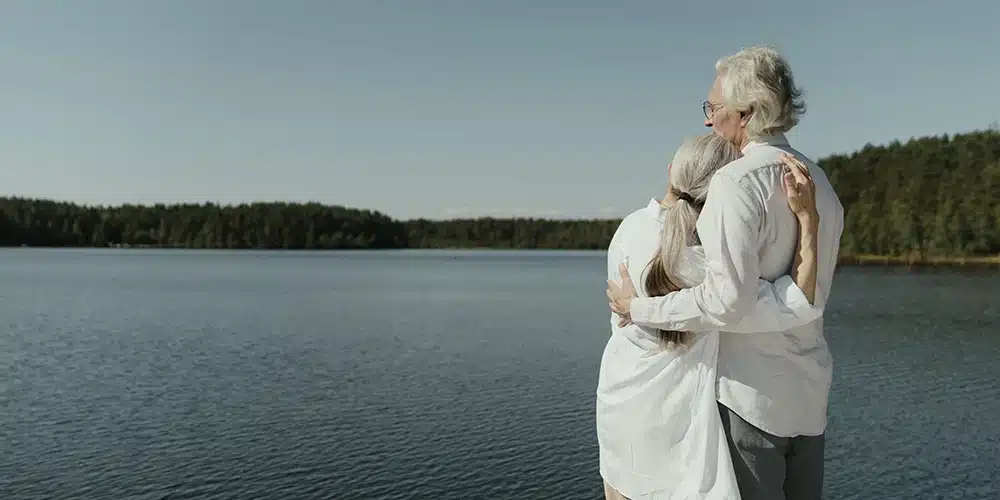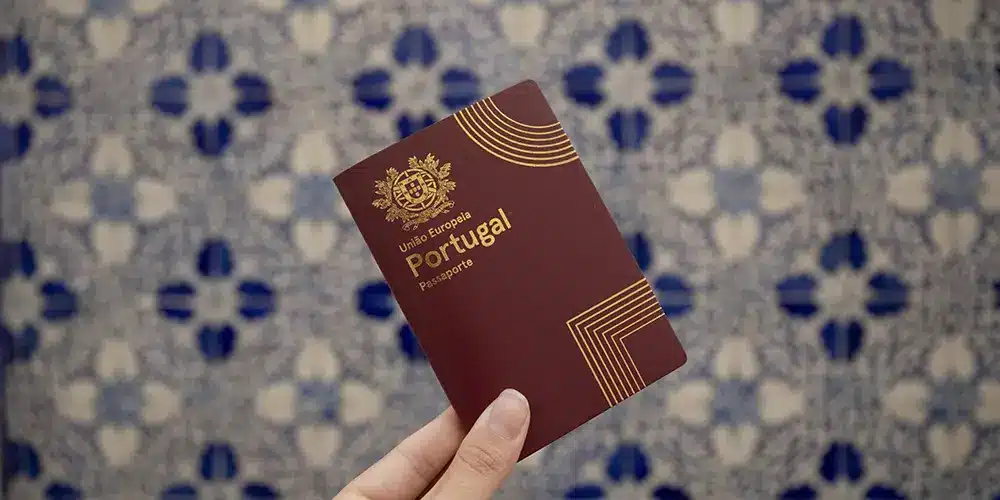Madeira, an autonomous Portuguese archipelago located in the Atlantic Ocean, has become one of Europe’s most attractive destinations for expats, retirees, and digital nomads.
Known for its subtropical climate, natural beauty, and high quality of life, Madeira’s cost of living is generally lower than that of mainland Europe or North America.
In this article, we’ll break down the cost of living in Madeira, covering housing, food, healthcare, transportation, and lifestyle expenses.
You’ll also learn more about:

Madeira offers an enviable balance of quality and cost that appeals to many people, from retirees on the Portugal D7 Passive Income Visa, families, and entrepreneurs to digital nomads on the Portugal D8 Visa.
Compared to many Western European cities, the island’s overall cost of living is lower, with particularly notable savings in housing, food, and healthcare. At the same time, certain costs, such as imported goods or fuel, are slightly higher due to Madeira’s geographic isolation.
For many expats arriving from the US, UK, or Northern Europe, the difference in affordability is striking. While cities like Lisbon, Barcelona, or London have seen a sharp increase in rental prices and daily living expenses in recent years, Madeira remains relatively insulated from these pressures.
Housing costs are more manageable, and the island’s agricultural abundance means fresh produce and local food are widely available at budget-friendly prices.
Another important aspect is lifestyle value. Madeira’s mild year-round climate significantly reduces heating and cooling costs compared to northern Europe or North America.
Coupled with Portugal’s reputation for affordable public services, including healthcare and education, the island allows residents to live well without overspending.
Here is a comparison of the cost of living between Madeira, Lisbon, and Porto. Madeira is affordable not only because prices are lower, but also because the island’s way of life naturally reduces expenses.
Less reliance on cars, more outdoor things to do in Madeira, and a focus on fresh, local food mean that many residents find themselves living comfortably on a smaller budget than expected.
Digital nomads and remote workers benefit, too. Thanks to strong internet infrastructure and initiatives like the Digital Nomad Village in Ponta do Sol, the island has established itself as a hub for location-independent professionals—all at a cost far below what they might pay in major tech hubs.
Groceries in Madeira are budget-friendly, particularly if you buy local. The island’s fertile volcanic soil makes fruits, vegetables, and even wine inexpensive. Fresh fish is also plentiful and reasonably priced.
Imported goods, however, can be more expensive due to transportation costs. Many residents choose a mix of shopping at supermarkets and open-air markets, where produce is fresher and cheaper.

Utility bills in Madeira are modest, especially compared to northern climates where heating is a major expense. The island’s mild year-round weather means you won’t need significant heating or air conditioning, which keeps energy costs down.
Some areas of the island can see fluctuations in electricity costs, particularly if you rely heavily on air conditioning during summer. Still, most residents find their monthly bills comfortably low.
According to Numbeo, the average monthly cost of utilities for an apartment of about 85 square meters is between €50 and €160.
A mobile phone plan with calls and more than 10GB of data will average about €15 a month, while a 60 Mbps unlimited internet package ranges from €20 to €60 per month.

Healthcare in Madeira is one of the island’s strongest advantages for residents. As part of Portugal’s healthcare system, Madeira benefits from the Serviço Nacional de Saúde (SNS), the national healthcare system, which provides universal coverage to Portuguese citizens and legal residents.
Public healthcare in Madeira is affordable and accessible, though it does come with some limitations. Care is delivered through a network of health centers and hospitals, with the Dr. Nélio Mendonça Hospital in Funchal serving as the main facility.
Residents pay either nothing or a small fee for consultations, lab tests, and prescriptions. Emergency services are available island-wide, and the quality of care is generally good.
Public healthcare can involve waiting times, particularly for specialist consultations or elective procedures. The system works well for routine check-ups and emergencies, but those seeking quicker access often look to the private sector.
Private healthcare in Madeira is popular among expats, retirees, and digital nomads. The island has several private clinics and hospitals, especially in and around Funchal, where English-speaking doctors and shorter wait times are standard.

Housing is one of the most decisive factors when considering a move to Madeira. Compared to Lisbon, Porto, or the Algarve, property prices and rents on the island are lower, though demand has been increasing due to the island’s popularity among expats, retirees, and digital nomads.
Funchal, the island’s capital, is the most expensive area, offering modern apartments, villas, and sea-view properties. Outside the city, in towns like Santa Cruz, Machico, or Ponta do Sol, rental costs drop significantly.
Rural areas and villages are even more affordable, making them attractive to retirees seeking a quieter lifestyle.
- One-bedroom apartment in Funchal center: €700–€1,000/month
- One-bedroom apartment outside center: €500–€700/month
- Three-bedroom apartment in Funchal center: €1,200–€1,800/month
- Three-bedroom apartment outside center: €800–€1,200/month
Short-term rentals are also common, especially in coastal areas that cater to tourists, so long-term tenants may face competition during peak tourist seasons.
Real Estate Purchases
Buying property in Madeira is a popular option due to relatively lower prices and the potential for value appreciation. Expats often purchase holiday homes, investment properties, or permanent residences.
Madeira has no restrictions on foreign property ownership, making it straightforward for expats to buy. However, investors are no longer eligible for the Madeira Golden Visa through a real estate purchase.
Nevertheless, real estate in Madeira offers good rental yields, particularly in Funchal and popular coastal towns.
Education in Madeira is accessible, high-quality, and affordable, offering both public and private options. Families relocating to the island will find that children can integrate easily into the local school system, with the option of international curricula in private institutions.
Despite its location, Madeira follows the Portuguese education system. In our Global Intelligence Unit’s Global Education Report, Portugal ranked 25th, noting that it offers cost-effective education, a welcoming living environment, and access to quality institutions.
Public Education

Public schools in Madeira follow Portugal’s national curriculum and are free of charge for residents. Classes are taught in Portuguese, which may be challenging for expat children at first, but many families see it as a valuable opportunity for language immersion. Schools are generally well-regarded, with strong standards in literacy, mathematics, and sciences.
Private and International Schools
For families who prefer bilingual or international programs, Madeira offers several private options and only two international schools.
These schools provide English or other languages curricula, with smaller class sizes and more extracurricular activities.
Higher education
Madeira is home to the University of Madeira, located in Funchal. It offers a range of undergraduate and postgraduate programs, attracting both local and international students.
Tuition fees are modest compared to universities in North America or the UK, typically €1,000–€3,000/year for EU students and slightly higher for non-EU students.
Why choose Global Citizen Solutions for your Immigration Visa?
GLOBAL APPROACH BY LOCAL EXPERTS
- GCS has offices located across Portugal.
- Members of the US-Portugal and UK-Portugal Chambers of Commerce in Portugal, and the Investment Migration Council (IMC).
- Our expert team can help you throughout your journey to secure your Visa.
100% APPROVAL RATE
- Our successful track record in applications provides reassurance to applicants.
- We have helped clients from more than 35 countries secure residency in Portugal.
ALL-ENCOMPASSING SOLUTION
- With a single channel of communication, our approach ensures that you have complete clarity on your application.
- Our BeGlobal® Onboarding System allows for a total flow of information.
TRANSPARENCY AND PRIVACY
- Our pricing is clear and detailed, you will not face any hidden costs.
- All data is stored within a GDPR-compliant database on a secure SSL-encrypted server.

